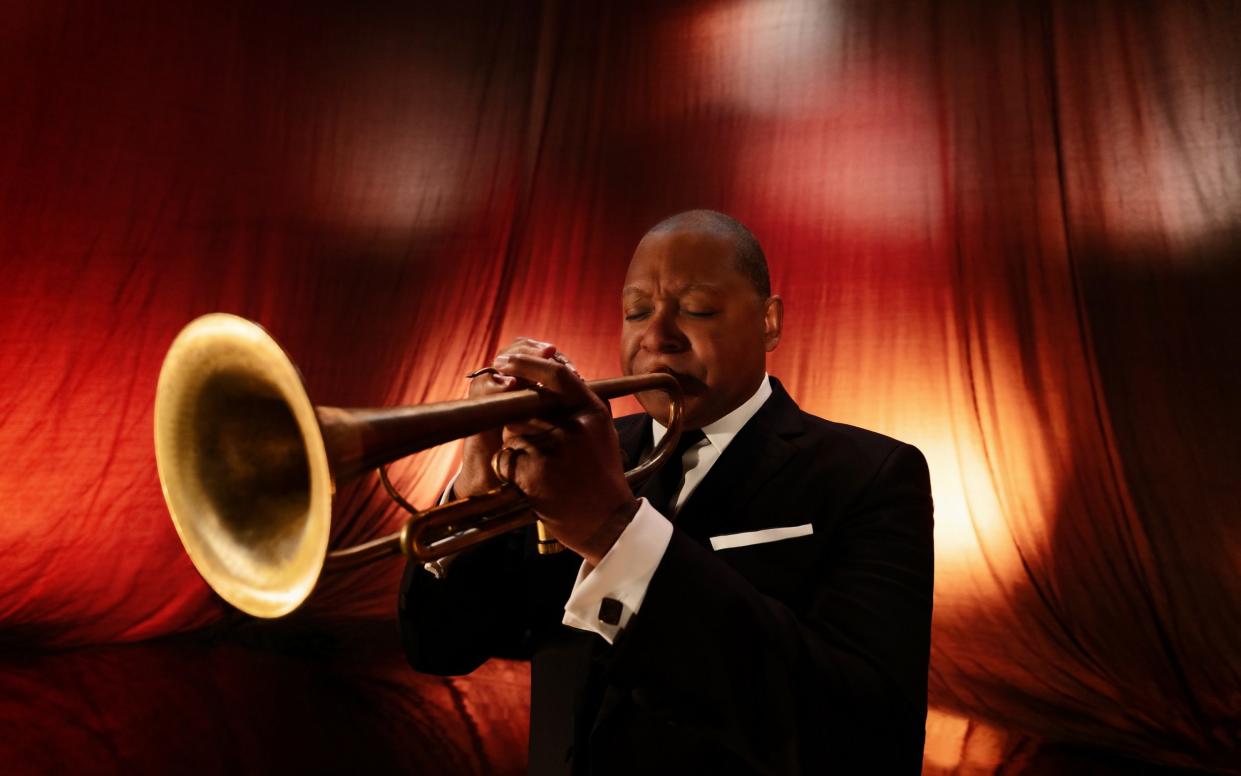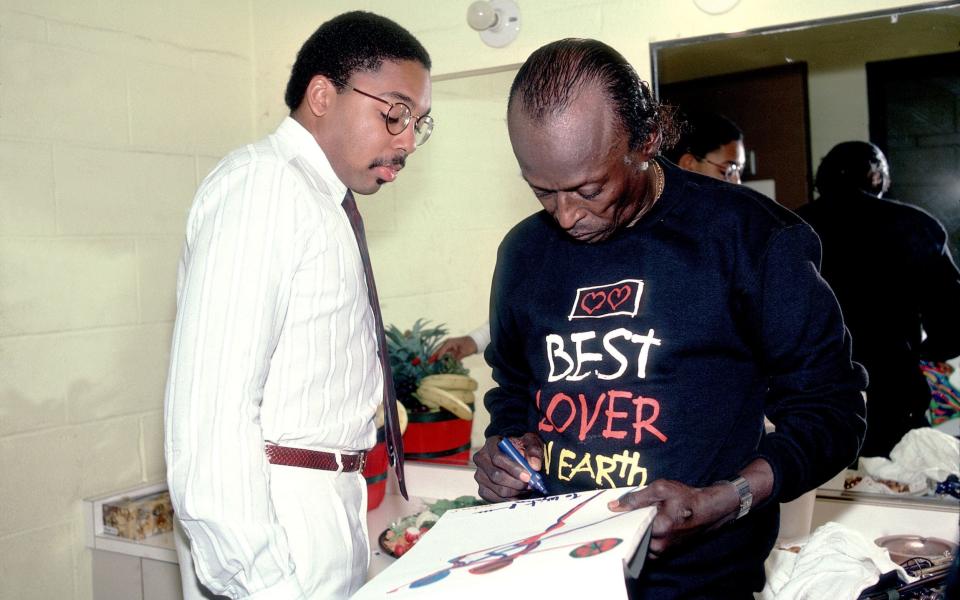Wynton Marsalis on classical, jazz and musical ‘sectarianism’

It can be a burden, wearing the mantle of the great Jazz Tradition. It’s a mantle Wynton Marsalis has taken on willingly for the past four decades, tirelessly promoting jazz as something worthy to stand beside any other form of music. He’s achieved this through his own recordings as a trumpeter and band-leader, through leading the Lincoln Centre Jazz Orchestra since 1996 and running a huge jazz education programme in thousands of schools across the US, and in recent years through his own large-scale compositions such as Blood on the Fields and the recent violin and trumpet concertos.
But it may be the simple weariness of being on tour with the JLCO that makes him less than his usual enthused energised self when I speak to him via Zoom in his surprisingly modest hotel room somewhere in France. When I ask him what he and the band are playing he finds it hard to sum up, because the real answer is “everything”.
“We try to show that all jazz music is contemporary, no matter what period it comes from. So we’ll play some original pieces of mine and other band members like the horn (saxophone) player Sherman Irby, trombonist Chris Crenshaw, but we have also music by Dave Brubeck, by Dizzy (Gillespie) by Duke (Ellington) also a piece by Wayne Shorter who passed away this year. So we honour our forebears, but because our music is also improvised we’re fulfilling their wishes in another way, because improvisation was at the heart of what they did, and what we do.”
It’s not just jazz Marsalis has excelled in. He seized the attention of the classical world back in the 1980s with spellbindingly virtuoso recordings of Haydn’s trumpet concerto and Bach’s 2nd Brandenburg Concerto. When I ask him why he turned his back on that he shrugs and says, “Yeah I would like to have done more of that, but you need to put all your time into that, if you want to keep your integrity. And I decided I wanted to be a jazz musician, which is a lifetime’s work. But it’s still part of me as a musician, because it’s part of what formed me. You know in New Orleans where I grew up there were so many different kinds of music.
“I remember in high school we had a great theory teacher who taught us variation form by comparing Bach’s Goldberg Variations with the recording Miles Davis made in 1964 of My Funny Valentine. I was playing in school orchestras from the age of 13, but I was also playing in New Orleans marching bands and other jazz bands.”
New Orleans was the mythical birthplace of jazz, and in Marsalis’s youth was full of top-level jazz musicians, so it’s not surprising jazz eventually claimed him. “I learned so much from my father, who was a great jazz educator, but there were so many others—Sweets Edison, Clark Terry, Sonny Stitt, later the free jazz musician Ornette Coleman. I would hang out in their homes, talk to them. If I had a problem I would call Dizzy Gillespie and he would help me through it.”
Talking about his extended jazz family has roused Marsalis, and when I ask about whether jazz’s affinities with other music the words come tumbling out. “I think jazz is a kind of music that unifies, it brings the world together, because it encompasses New and Old World traditions. It puts together West and the East, and also an African element to do with finding a balance, a polarity, between light and dark. And there’s a use of musical space in jazz which is like Eastern music, that’s something Bill Evans pointed out in his liner notes for Miles Davis’s Kind of Blue. And through the use of certain modes there’s even a link to Irish traditions.
“Jazz has a strong ritual element, but it also has a particular strain of innovation and creativity. Unlike classical music this is not focused on the single great person. Of course jazz has its great individuals, but so much of the creativity comes out in a collective way, from musical interactions.”

When I ask him whether he agrees with the view that classical music and jazz are fundamentally antagonistic, I see a flash of the pugnaciously contentious Marsalis who’s spoken out against the violence and misogyny of some hip-hop. “To me that’s a kind of sectarianism. I don’t want to say racism because it’s deeper than that. Trying to say this kind of music is superior or antagonistic to that is an attempt to show your tribe is better. Also it’s like saying human achievements belong only to one group. Think about the pyramids. People say the Egyptians built them, but to me it’s humans who made this incredible achievement, their nationality or group is a secondary thing. With really great thinkers their achievement can reach across to time and culture to us now.”
Marsalis is clearly enthused by these big themes, but it’s when the conversation turns back to the tour and the JLCO’s upcoming concerts at the Barbican and at the Verbier Festival that he actually smiles. “You know the great thing is we never stop trying to get better. Most nights the players only get to play one solo, that’s their chance and they always seize it. We sometimes do morning concerts in schools, which isn’t so great for our lead trumpeter because he ain’t exactly a morning person, but he still plays with his heart and soul like it’s the biggest gig of his life.
“Sometimes when we’re playing there are moments that are so good I just have to laugh. One of our players Ted Nash does these great arrangements, and there’s a chord in a Dave Brubeck arrangement of his that’s so good we just all smile and look round at each other. We’ve been playing together so many years, but every night we’re still trying to impress each other and go further. It’s been such an unbelievable blessing to play with these incredible musicians, and I just want to make sure the next generation have the same opportunities.”
Wynton Marsalis performs at the Barbican this Sunday and at the Verbier Festival on 22 July. Selected Verbier Festival programmes are available to watch for free on medici.tv, including Nicola Benedetti performing Marsalis’s Violin Concerto and Håkan Hardenberger performing Marsalis’s Trumpet Concerto.


